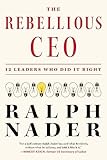Below is a slightly modified talk that I gave at the 2016 Left Forum, Saturday May 21st, 2016 at John Jay College in Manhattan, NY. The Left Forum is a yearly assembly of progressive forces from social democrats to revolutionary Pan-Africanists. Organizers requested insight on current developments of the Black Freedom Struggle. This is my response.
Thursday, May 19th was the 91st revolutionary birthday of Brother Minister, El-Hajj Malik El-Shabazz (Brother Malcolm X). He was born May 19th 1925, brutally assassinated at the Audubon Ballroom on February 21st, 1965. And it would be just like Malcolm to request upon us that we not only lift his name in love and respect, but to also lift Yuri Kochiyama, Lorraine Hansberry and Brother Ho Chi Minh’s name in love and respect.
I think the way that Malcolm was evolving that he would want us to recognize all of their contributions to the struggle of poor and oppressed people. This was the same Malcolm X who said “I, for one, will join in with anyone, I don’t care what color you are, as long as you want to change this miserable condition.”
Unfortunately, comrades, we’re still living many of those same miserable conditions. The same conditions that Malcolm was preaching about in 1964/65 are the same conditions we’re living today: racism and Jim Crow legal practices, police murders of Black men, Black women and Black babies, church burnings and mass incarceration, poor housing and third class living conditions. The murder of Tamir Rice was no different than Emmett Till half a century ago. The same poverty then, is the same poverty now, even worse. The same imperialism. The same police state.
Though those same conditions exist today, comrades, Brother Malcolm did leave a blueprint, so to speak. Notice I didn’t say a guaranteed winning path; I said a “blueprint.” Blueprints still have to be executed. Blueprints still have to be constructed through work and collective struggle.
And I think that’s the time that we’re living in right now—a renewed period of work and struggle. A new generation of young freedom fighters have stepped forward, comrades, teenagers, 18, 20, 21. We had a young sister soldier who came to Baltimore with us last month who was 16, and ready to fight. She was sharp, too y’all! And do you all know what’s so absolutely kickass amazing? Brother Malcolm X is right back in the swing of things, right back on the front line from the depths of his grave.
Believe it or not, comrades, other than maybe Beyoncé (laughing), NO ONE is being studied and paid more homage right now than Brother Malcolm X, at least among the movement’s Black youth. It’s very interesting, funny almost, but I’m actually being serious. Sis Beyoncé put Malcolm X front and center on her new album, which instantly went global.
For those who haven’t heard it yet, it’s called “Lemonade” (as in how Black women, the Black community, and Black people have always taken America’s lemons and somehow, still made lemonade out of our very lives). The album features Malcolm X live, as if he were talking right in your left ear:
The most disrespected person in America is the Black woman. The most unprotected person in America is the Black woman. The most neglected person in America is the Black woman.
It’s quite riveting, comrades, and still true today! When I heard that live vocal sample on the album, I couldn’t help but to think of Sandra Bland, murdered by police in a Texas jail cell, Rekia Boyd, Renisha McBride, and 7 year old Aiyana Stanley-Jones, murdered by Detroit police while she was sleeping. For all the criticism she’s received, for Sis Beyoncé to put Malcolm X on her album like that was actually quite revolutionary. I didn’t say she was a revolutionary, I said the act was revolutionary.
Let me break this down for those who may not understand the significance of that. As of last month, you have Black girls—girls of color ALL OVER THE WORLD, as young as 6 years old, googling Malcolm X now, reading about him, writing about him, learning about him, listening to his speeches. Not in the public school system, but on their own independent free thinking terms.
Right here in Manhattan somewhere, I can almost promise you, there’s a crew of 12 year old Black girls braiding each other’s hair right now, discussing Malcolm X’s political theory. That’s happening right now, in 2016! That kind of enthusiasm for Malcolm X hasn’t happened in 40 years, comrades.
A good friend of mine, Dr. Ashley Farmer, who’s currently working on her post-doctoral degree at Duke University, just published a major academic article on Malcolm X. It’s entitled, “The Many Women Mentors of Malcolm X,” a must read. It was published via the African American Intellectual History Society on May 3rd and has gone viral ever since.
Please understand what’s happening right now. As the state has clamped down, and decent employment has dried up—as conditions have worsened and white supremacy has once again mounted an ugly surge via the Trump Campaign and the Ku Klux Klan’s new membership drive, Black and oppressed youth have sought guidance in an old friend. The youth in Ferguson. The youth in Baltimore. The youth in Palestine. Black girls and Black boys are discovering Malcolm X for the first time again.
I think the reasons he has reemerged are multifaceted. Not only was Malcolm ahead of his time regarding the role of women, Malcolm X was thinking, traveling and organizing internationally in the early 1960’s, long before social media or the internet.
Today, we have Facebook and Twitter, which is how our Palestinian comrades were assisting the struggle in Ferguson during the 2014 rebellion. Malcolm didn’t have that, but he did organize a very similar network of friends, allies and comrades—in Cuba , in Ghana, in Egypt, in Algeria.
Interestingly, when I was in Lebanon last year for the International Forum for Justice in Palestine, it was the youth from Algeria and Tunisia who knew all about Malcolm X. I learned firsthand that Malcolm X is still, very much so, a bridge of international working-class struggle, worldwide. When Malcolm stated in 1964 that —
It is incorrect to classify the revolt of the Negro as simply a racial conflict of Black against white, or as a purely American problem. Rather, we are today seeing a global rebellion of the oppressed against the oppressor, the exploited against the exploiter.
— I think the youth really took note then. And it’s obvious they’re taking even more notes today. This renewed brand of internationalism was, no question, inspired by Malcolm X over 50 years ago. There’s also another recent phenomenon that was inspired by Malcolm X.
One of the current and most beautiful aspects of the Black Lives Matter Movement is this new emphasis on things, “Black.” Not only do Black Lives Matter, but the masses of Black youth are now “unapologetically Black,” redefining what Black Power means for a new generation.
If you haven’t noticed, Black youth are wearing their hair natural again now. The young sisters today have said the hell with straightening their hair. They’re rocking their locs, braids and cornrows—the short doobies, their natural coils and twists. It’s not only happening down in Durham, North Carolina, it’s happening all over the U.S. And this “mental shift” isn’t just a matter of aesthetics; it’s a reflection of a political and cultural shift.
Some people say this kind of thing isn’t important, but I sure think it is. If you don’t have any pride in who you are, how in the hell can you be a good freedom fighter? If you don’t love the very essence and beauty of who you are, who your people are and where you’ve come from, you’ve already lost before you can even get started. If you don’t love the people, how can you serve the people?
You have to love yourself and love your people, first, then you’ll have a cause to fight for—a worthy cause, a noble cause, a righteous cause—the kind of cause that will make you sacrifice for the next generation—out of love, out of pride and solidarity. We learned that from Brother Malcolm X! He lived that, sisters and brothers, every day.
Last year, during the Movement for Black Lives Convening in Cleveland, Ohio, we actually lived that feeling in a genuine manifestation. Personally, I had never experienced anything like that before. Everybody there was Black and proud! I thought I was going to be the only one [laughing], but no, that wasn’t the case at all.
Now, when I say “proud,” I don’t mean the arrogant kind of proud. I mean the SHUT SHIT DOWN kind of proud—the kind of proud that makes you stand up and fight back instead of laying down and begging. The kind of proud that makes you defend yourself, resist and hold your head high, despite the teargas, despite the tanks. The kind of proud that makes you so angry that you get organized and take over highways and universities.
It was Malcolm X who gave us that, comrades—not only 50 years ago, but today in 2016. And the young people have taken that and run with it. So let’s help them go as far as they can with it.
COINTELPRO thought that they had killed Malcolm, but the youth are keeping him alive.
What a beautiful struggle! Let’s get behind them, comrades. Let’s get behind them and seize the time.
In the words of El-Hajj Malik El-Shabazz, “The future belongs to those who prepare for it today. In all our deeds, the proper value and respect for time, determines success or failure.”
All power to the people!











